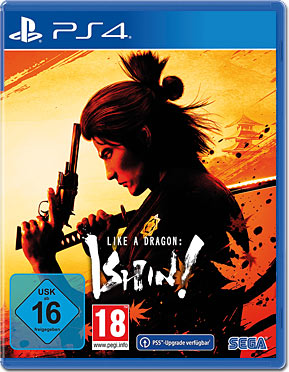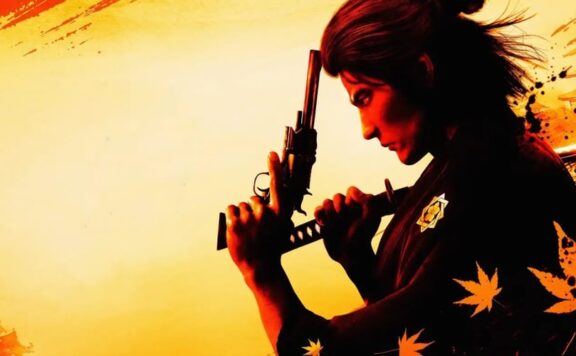

If you weren’t a fan of Like A Dragon’s shift to turn-based combat, Like A Dragon: Ishin! has you covered. Myriad twists and turns constantly kept me on the edge of my seat, and while I appreciate the labyrinthian plots of prior entries, it’s nice to have something more straightforward in nature, meaning Ishin spends less time exposition dumping, and more time with its characters and moral quandaries. It holds remarkable pace, constantly dangling the carrot in front of you without ever divulging all of its answers until credits roll. The story itself is compelling from start to finish, brought to life by consistently stunning cutscenes, excellent performances, and unending attention to detail. While I haven’t played the original, the inclusion of these characters feels more celebratory and reverent as opposed to invasive or out of place. Another nice touch is the inclusion of characters from Yakuza 6, and Like A Dragon, who weren’t present in the original Japanese release.
Like a dragon ishin card system series#
These characters also don’t always align in behaviour and morals as their mainline series parallels, which makes for many unexpected moments and interactions that had me grinning from ear to ear.

Series veterans will no doubt get a kick out of seeing fan favourite characters translated into these historical figures, which also keeps the narrative firmly rooted within the realms of Yakuza. Reading up on the people these characters were inspired by, and the events that they become entangled in was a cathartic moment of realisation and connection to the country’s storied history. It’s obviously quite dramatised for the purpose of entertainment, but this aspect of the story folds in an element of historical accuracy that’s new to the series. What’s most fascinating about Ishin’s narrative, though, is that it’s largely based off of people and events that actually happened in Japan during this time of turmoil. In typical Yakuza fashion, what unfolds is a grand conspiracy that reaches far across Japan, with Ryoma taking centre stage in the conflict. One year later, and going by the alias of Saito Hajime, Ryoma seeks to infiltrate the Shinsengumi in the search for his father’s murderer.

Things quickly turn sour, though, as Toyo is assassinated by a masked assailant, forcing Ryoma to leave Tosa behind as the prime suspect of the murder, fleeing to Japan’s capital of Kyo.
Like a dragon ishin card system free#
Ryoma, together with his surrogate father Yoshida Toyo, and his best friend, Takechi Hanpeita, hatch a plan to free Tosa from its oppressive government. Ryoma returns to his hometown of Tosa after spending time in Edo studying swordsmanship, and is soon pulled into a political conspiracy to upend the discriminatory social class system Tosa is embroiled in. Players step into the shoes of Sakamoto Ryoma, who bears a striking resemblance to former series protagonist Kazuma Kiryu. Specifically set in the late Edo period, Japan is undergoing a transformation after the arrival of Western ships during the Bakumatsu era. Despite some flaws, Like A Dragon: Ishin! is a wild ride that deserves a place in the pantheon of its predecessors, and is a must play for series veterans and newcomers alike. Serving as a spin-off set in the samurai era of Japan as opposed to the bustling modern-day landscapes seen in mainline entries, Ishin offers up a unique flavour of Yakuza, one most comparable in gameplay to the likes of 5 and 0, but narratively, unlike anything we’ve had before. It comes to us in 2023 rocking the brand new moniker for the series as Like A Dragon: Ishin!, and is fundamentally different from prior entries. The results of this have been felt quite quickly, with simultaneous releases and a slew of new projects in the coming years, including the long-awaited remake/localisation of Ryu ga Gotoku Ishin!, which only released in Japan when it originally launched in 2014. Starting with Yakuza 0’s worldwide release in 2017, the franchise has propelled itself into the limelight, finally garnering the recognition and reception it deserves.

The rise of Yakuza’s popularity in the West has been something to behold over the last few years.


 0 kommentar(er)
0 kommentar(er)
